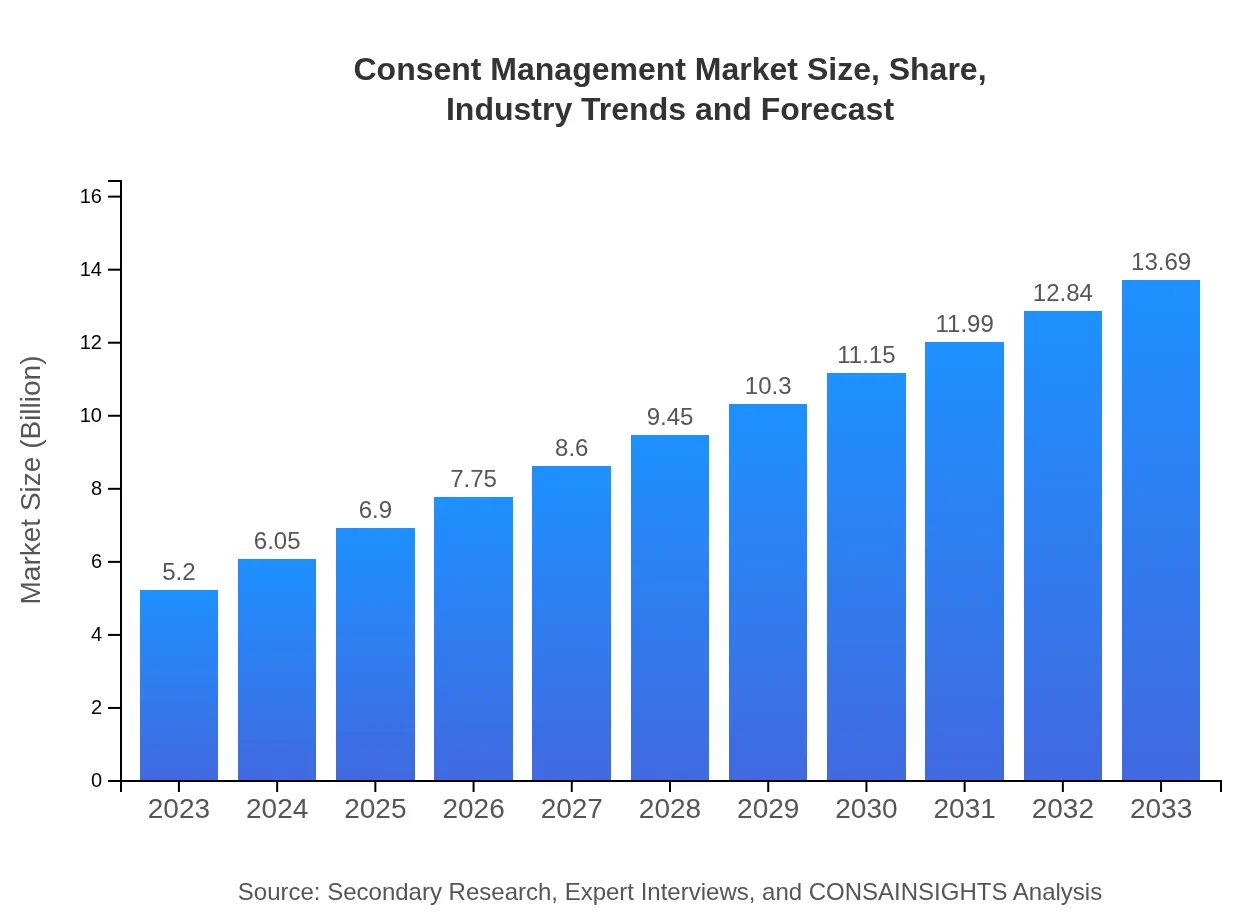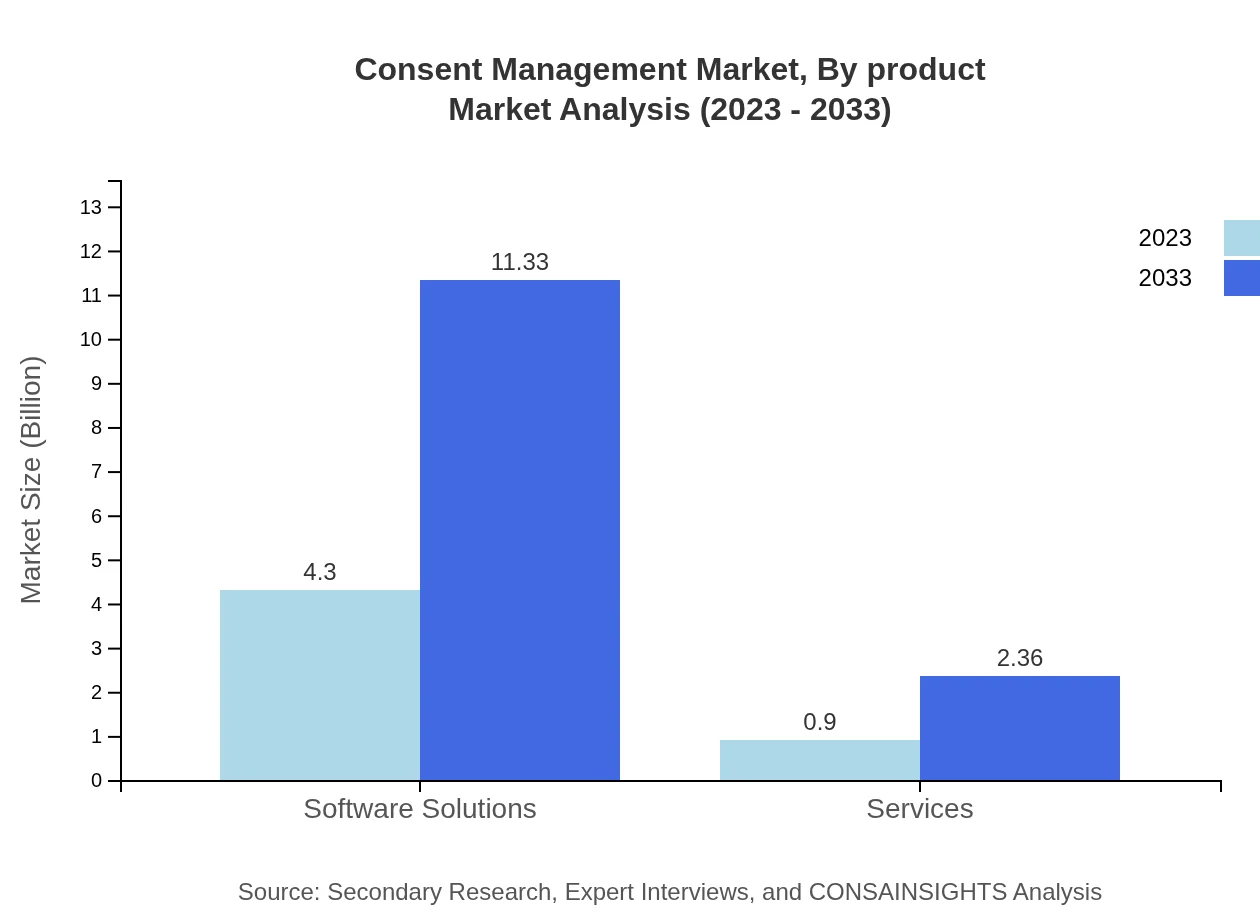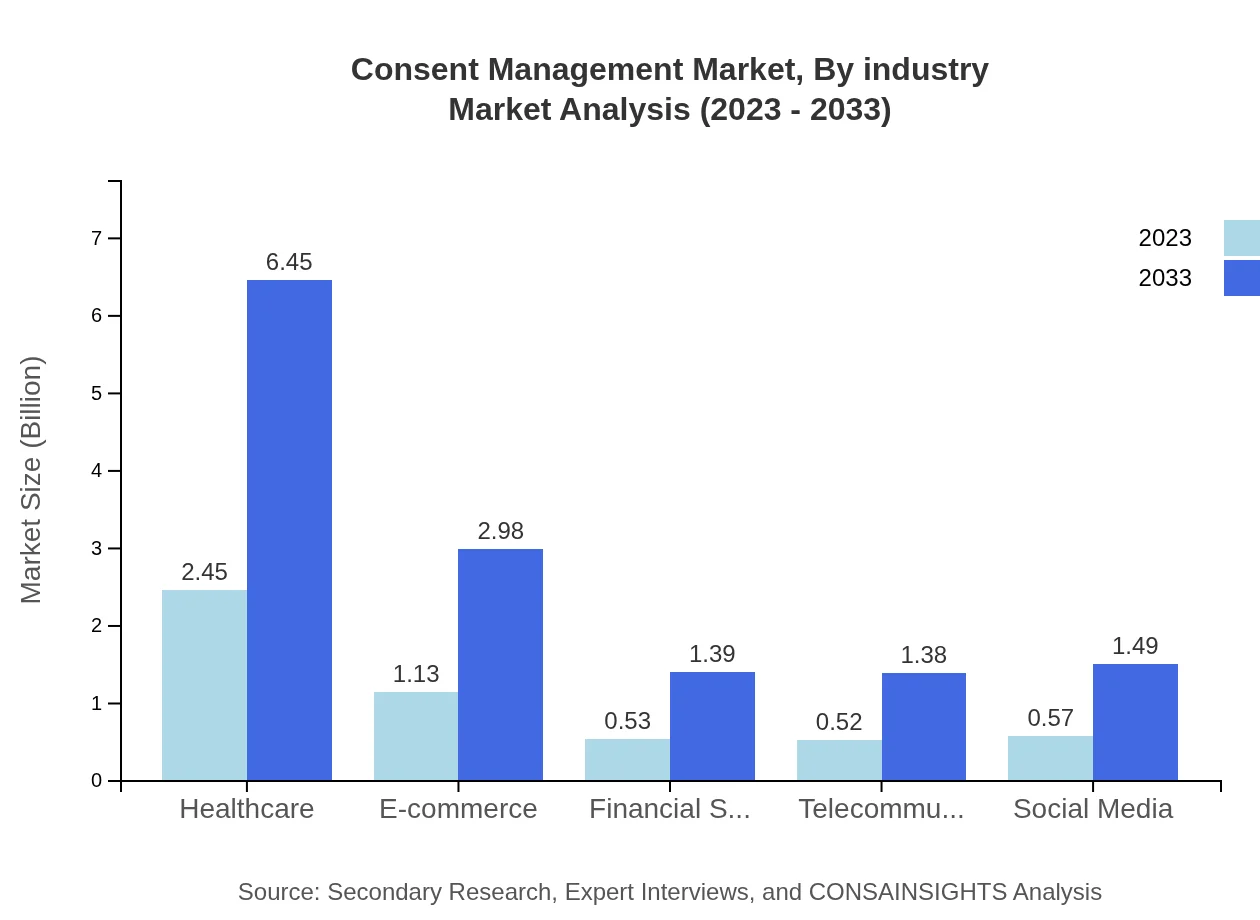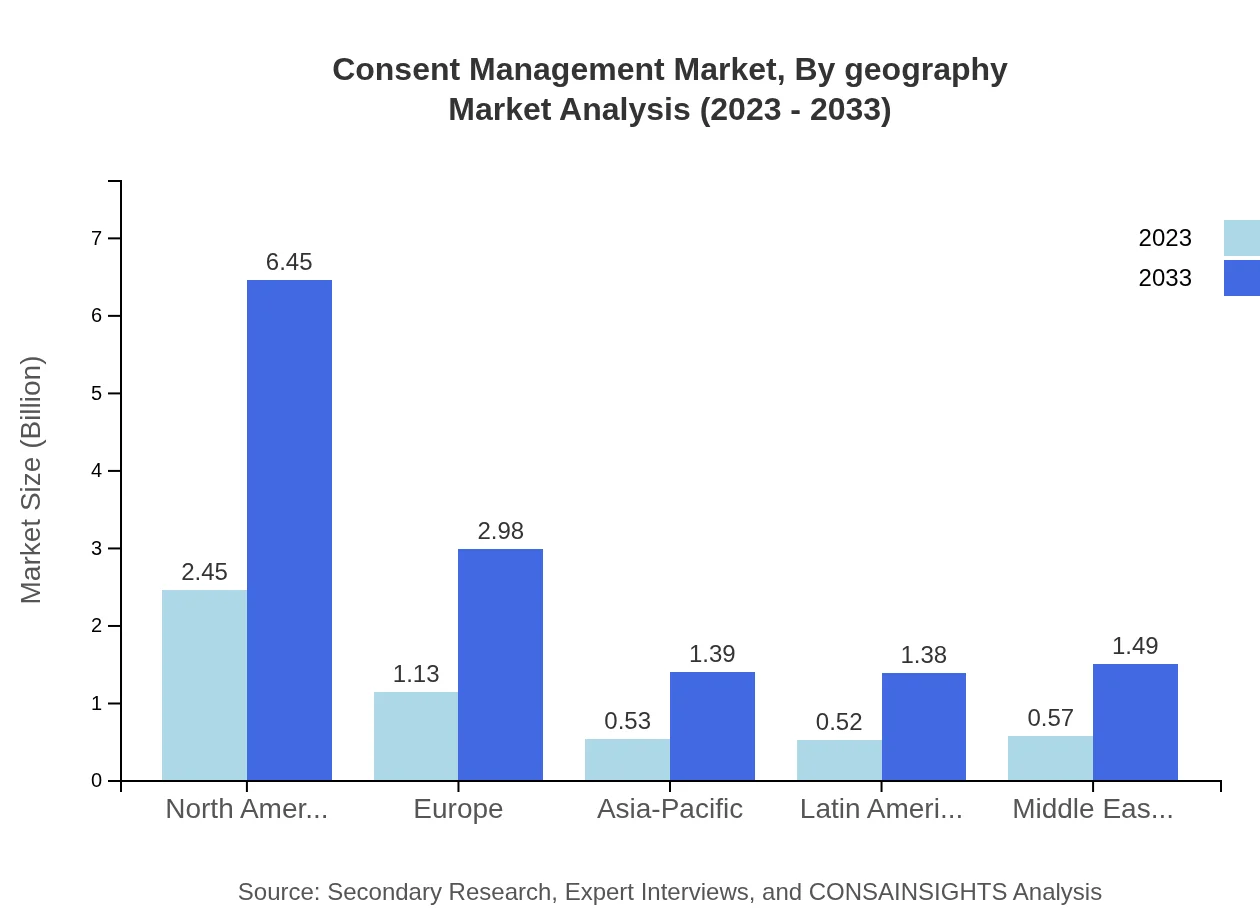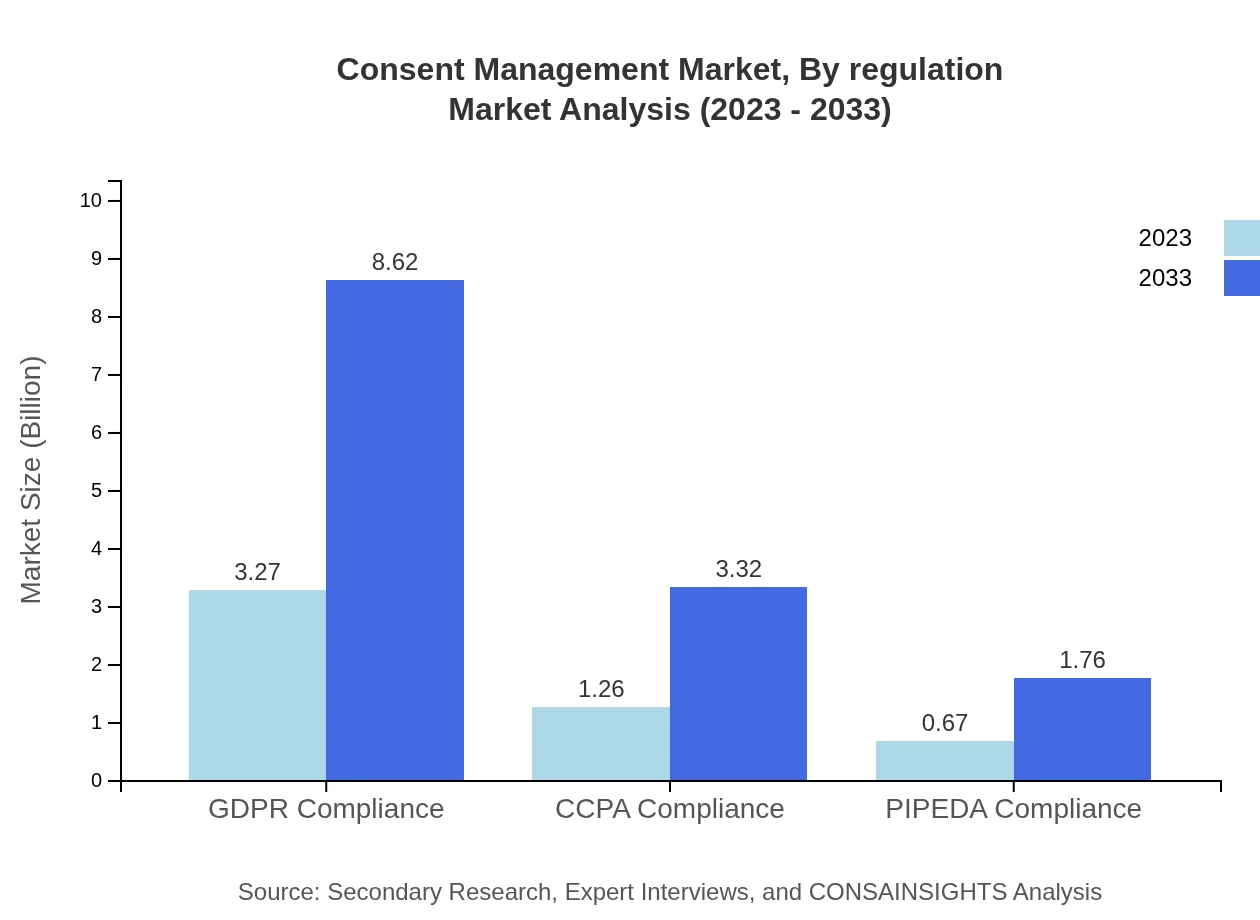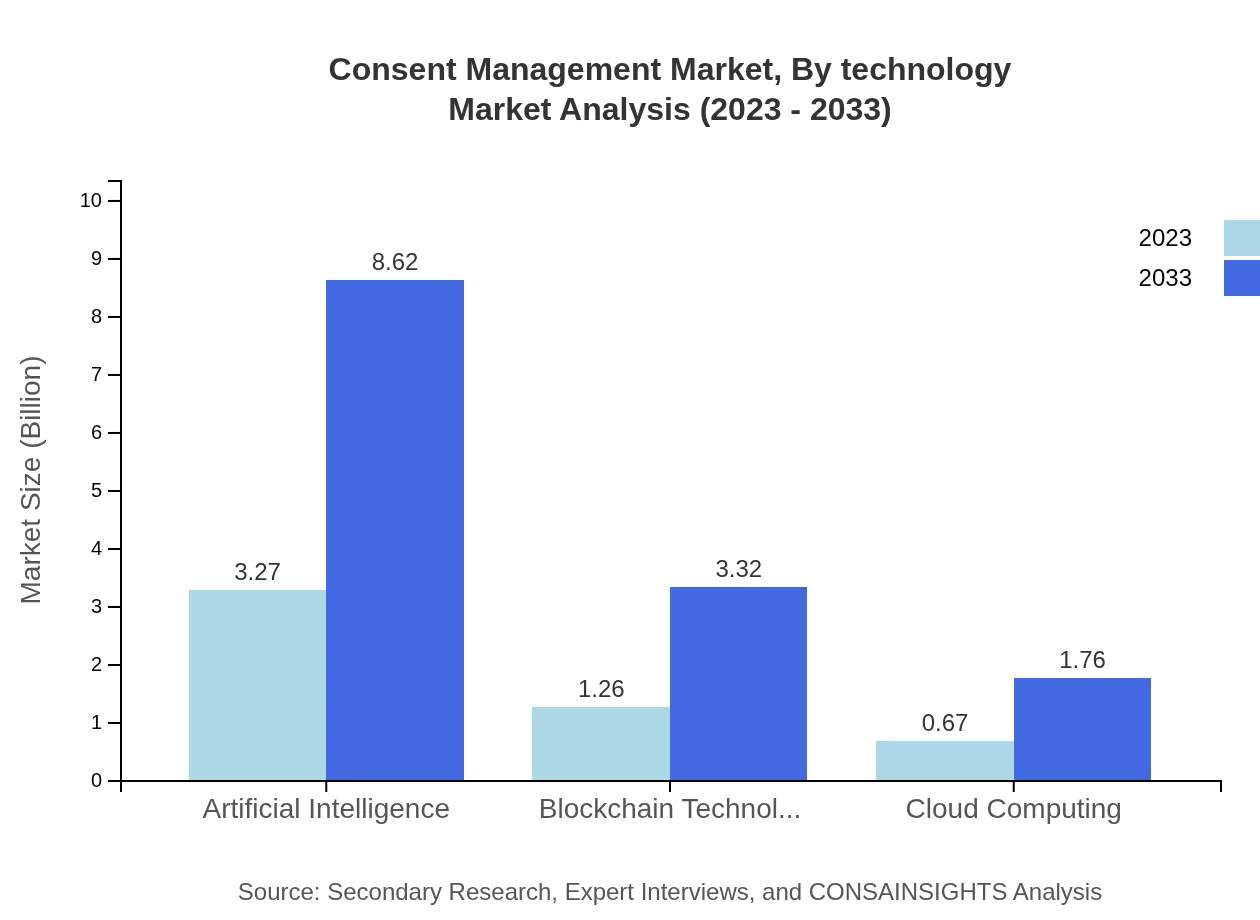Consent Management Market Report
Published Date: 31 January 2026 | Report Code: consent-management
Consent Management Market Size, Share, Industry Trends and Forecast to 2033
This report delves into the Consent Management market, offering comprehensive insights into its current state, future trends, and growth forecasts from 2023 to 2033, including segmentation, regional analysis, technology impact, and key players in the industry.
| Metric | Value |
|---|---|
| Study Period | 2023 - 2033 |
| 2023 Market Size | $5.20 Billion |
| CAGR (2023-2033) | 9.8% |
| 2033 Market Size | $13.69 Billion |
| Top Companies | OneTrust, TrustArc, BigID, Cookiebot |
| Last Modified Date | 31 January 2026 |
Consent Management Market Overview
Customize Consent Management Market Report market research report
- ✔ Get in-depth analysis of Consent Management market size, growth, and forecasts.
- ✔ Understand Consent Management's regional dynamics and industry-specific trends.
- ✔ Identify potential applications, end-user demand, and growth segments in Consent Management
What is the Market Size & CAGR of Consent Management market in 2023?
Consent Management Industry Analysis
Consent Management Market Segmentation and Scope
Tell us your focus area and get a customized research report.
Consent Management Market Analysis Report by Region
Europe Consent Management Market Report:
The European market, with its leading data protection regulations, is projected to see a rise from $1.67 billion in 2023 to $4.40 billion by 2033. The necessity for GDPR compliance drives organizations to invest heavily in consent management technologies.Asia Pacific Consent Management Market Report:
The Asia Pacific region is expected to showcase significant growth, from a market size of $0.92 billion in 2023 to approximately $2.43 billion by 2033. This growth can be attributed to the rapid digital transformation, rising internet penetration, and increasing regulatory frameworks promoting data privacy in countries like India, China, and Japan.North America Consent Management Market Report:
North America remains a dominant market for Consent Management, anticipated to grow from $1.90 billion in 2023 to $5.00 billion by 2033. The region's robust regulatory environment, particularly with regulations such as CCPA and GDPR influencing practices, along with high technology adoption, fuels this growth.South America Consent Management Market Report:
In South America, the Consent Management market is projected to grow from $0.26 billion in 2023 to $0.70 billion by 2033. The expansion is driven by an increased focus on data privacy regulations and the growing adoption of digital services, which necessitate effective consent management.Middle East & Africa Consent Management Market Report:
The Middle East and Africa market is forecasted to expand from $0.44 billion in 2023 to $1.16 billion by 2033. Growing internet usage, regulatory developments, and a focus on digital services in various sectors contribute to this increase.Tell us your focus area and get a customized research report.
Consent Management Market Analysis By Product
The Consent Management market comprises two major segments: software solutions and services. As of 2023, software solutions dominate the market with an estimated value of $4.30 billion, expected to reach $11.33 billion by 2033, maintaining an 82.77% market share throughout the period. Services, however, are also vital, showing strong growth from $0.90 billion in 2023 to $2.36 billion by 2033, capturing a 17.23% market share.
Consent Management Market Analysis By Industry
Healthcare leads the Consent Management market, valued at $2.45 billion in 2023 and projected to grow to $6.45 billion by 2033, holding a 47.14% market share. E-commerce follows with a steady increase from $1.13 billion to $2.98 billion, while Financial Services and Telecommunications contribute at $0.53 billion and $0.52 billion respectively in 2023, each segment anticipating growth during the forecast period.
Consent Management Market Analysis By Geography
North America and Europe lead the regional segmentation of the Consent Management market, with North America starting at $2.45 billion in 2023 and reaching $6.45 billion by 2033. Europe holds substantial market value as well, projected from $1.13 billion to $2.98 billion. The Asia Pacific region shows promising growth potential, especially with the increasing demand in emerging markets.
Consent Management Market Analysis By Regulation
Regulatory compliance is a significant component of the Consent Management market, focusing on standards like GDPR, CCPA, and PIPEDA. The GDPR compliance segment alone is expected to rise significantly, starting at $3.27 billion in 2023 and reaching $8.62 billion in 2033, highlighting the urgent need for businesses to comply with stringent data protection laws.
Consent Management Market Analysis By Technology
Technological advancements are pivotal in the Consent Management market, with trends focusing on Artificial Intelligence, Blockchain Technology, and Cloud Computing. The Artificial Intelligence segment alone is anticipated to grow from $3.27 billion in 2023 to $8.62 billion by 2033, showcasing its vital role in automating consent processes and enhancing user experience.
Consent Management Market Trends and Future Forecast
Tell us your focus area and get a customized research report.
Global Market Leaders and Top Companies in Consent Management Industry
OneTrust:
OneTrust is a leading privacy management software that offers comprehensive consent management solutions, allowing organizations to comply with global privacy regulations effectively and maintain customer trust.TrustArc:
TrustArc provides a wide range of privacy compliance solutions, emphasizing consent management tools designed to ensure organizations meet regulations and empower user control over personal data.BigID:
BigID offers robust data intelligence solutions that incorporate consent management functionality to help organizations understand and govern their data privacy practices efficiently.Cookiebot:
Cookiebot specializes in cookie consent solutions that automate compliance with GDPR and CCPA while improving website transparency and user control over cookies.We're grateful to work with incredible clients.









FAQs
What is the market size of consent Management?
The global consent management market size is projected at $5.2 billion in 2023, with an impressive CAGR of 9.8% anticipated through 2033, indicating robust growth as regulations and consumer awareness around data privacy escalate.
What are the key market players or companies in this consent Management industry?
Key players in the consent management industry include OneTrust, TrustArc, and CookiePro, among others. These companies lead the market by offering innovative solutions for compliance and user consent management, enhancing data privacy protection.
What are the primary factors driving the growth in the consent Management industry?
The primary growth factors include increasing regulatory pressures regarding data protection, heightened consumer awareness of privacy rights, and the need for businesses to manage user consent efficiently across various platforms.
Which region is the fastest Growing in the consent Management?
North America is the fastest-growing region in the consent management market, expected to expand from $1.90 billion in 2023 to $5.00 billion by 2033, driven by extensive GDPR and CCPA compliance requirements.
Does ConsaInsights provide customized market report data for the consent Management industry?
Yes, ConsaInsights provides tailored market reports, allowing stakeholders to gain insights specific to their needs in the consent management industry, facilitating informed decision-making and strategic planning.
What deliverables can I expect from this consent Management market research project?
Deliverables from our consent management market research include comprehensive market analysis, segmentation data, competitive landscape reports, and recommendations for market entry strategies tailored to client specifications.
What are the market trends of consent Management?
Current trends in the consent management market involve a shift towards automation and AI integration, businesses prioritizing user-centric privacy measures, and increased collaboration across sectors to enhance compliance frameworks.

